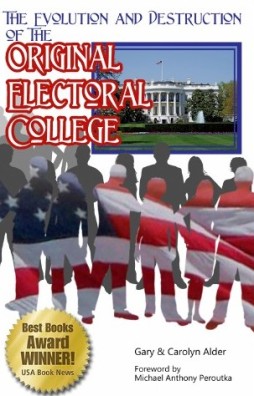Lesson 3 Assignment 1
Student Responses:
“I believe when we vote with our dollars, we feel we are receiving value in excess of the value of our dollar. Under this vote, we are satisfied that the labor our dollar represents is sufficient for the item we are voting for.
When we vote at the ballot, we feel confident that someone else’s labor will be sufficient in exchange for our vote. The similarities are that a vote (in both situations) is an exchange for something we feel that is of value. In contrast, we are in control of the labor we produce for our dollar. In the ballot process, if the labor is not sufficient from the one elected as a result of our vote; then the value of our vote has diminished.”
—Sal Vargas
“Positive aspects: Seeking the American dream, can motivate individuals to work hard toward success. Capitalism can create prosperty for those who work for it. Capitalism can be a motivation behind ingenuity and invention and said inventions can then provide an improved lifestyle of others in the nation and even the world.
Examples of people who started with nothing can inspire others to rise to greatness in any chosen field of endeavor. When people are successful and happy and this does not mean money. When people’s needs are met, then there can be less inclination for crime. People can be motivated to help a charity or hire others in a business they may start. Good people can influence others toward success by example and by positive mentoring.
People who are not lawyers, but like the average Joe, who has managed a business or has had experience in normal day to day life survival may have their head on right compared to someone who is a career politican. Common sense can be gained by experience and so people who run for office who have had other expereinces in their lives outside of the political realm can enable that prospective politician toward common sense. The average Joe has not had a life removed from normal man and thus may be more inclined to consider other average Joes when dictating policy
Negative aspects:
Citizens can influence candidates by funding their rise to power so that when they reach that power those politicans can return the favor i.e. Unions providing millions of dollars to the current administration get paid back by getting rule control over automobile companies. Sponsors also get stronger influence over politicans who provide or alter laws in favor of those who sponsor said politicians.Media may get to go to the parties and get paid well if they say things that please any current administration. Thus becoming puppets of an administration.
Citizens who think they can get a free ride by milking off the wealth and labor of others, will vote for politicians who will empower said citizens i.e. buying their vote.
Its been accused of the past administraton giving favor to large corporations and thus republicans getting the reputation of promoting big business. Now the current administration is going to punish others success taking away their pay or reducing executive pay severly.”
—Melva Gifford
“Voting with our dollars can be viable only in a free-market economy. For the present, I’d like to ignore the text book assumption that in a free-market economy prices are in perfect balance because every seller and buyer has complete access to all information that could affect those prices. Let’s just say that in general, supply and demand affect the direction of prices. This is win-win because sellers can get what they want for a product and can even competitively cut prices to increase sales. Buyers can secure the products they want and enjoy the possible savings of competition. Buyer demand can spur productivity creating buyer satisfaction, and sellers reap the profits. Purchasers preferring Product A over Product B have just that affect on the seller of Product A. As for the seller of Product B, he is fully able to change his product, his sales approach, his pricing, his corporate struction; in other words, all is not lost–he is still in the game through intelligent competition.
In elections, the voters are the consumers and the candidates are each offering their “branded” versions of how best to meet voter needs for their coming term of office. The arena is competative. Voters make the choice (although I’d venture that their knowledge of the “product” is far less complete than in purchasing with their dollars). Candidates can choose their direction, modify it, advertise, even restructure their philosophies in order to secure votes.
In purchasing, consumer self-interest is key to choice. But in voting, the “consumer” should not be confining votes to self interest, but should be actively seeking candidates who will serve with an understanding of the laws and governing documents undergirding their service. The self-interest that marks the market place damages the voting booth as politicians seek to “buy” votes by appealing to people’s demands for privileges and care never envisioned by the founders of the entity in which they are running (local, state, federal).
It has become worse and worse–even judges are saying that the federal government can force citizens to go into a particular health care plan. In a free market economy, the lack of restraints and interferences can help buyers and sellers achieve the equilibrium needed in distribution of goods. But in elections, overbearing and overruling self-interest ultimately destroys freedom and turns citizens into serfs of the goverment.”
—Mary Hokanson
“”Voting” with our dollars is one of the best ways we have of really making our wishes known in society. As individuals, what we tend to spend money on is usually what is most important to us. As a society, if enough people like a product or service, then then more organizations are created to provide that product or service, the resulting competition usually creates an atmosphere of innovation and competition that ultimately lends itself to a better product or service being available for us to spend our money on. Adversely, if the product or service is not wanted by the public, and we don’t spend our money on it, it usually ends up going away.
It is always amusing to me when the system is schemed either by governments or semi-quasi political organizations. Whether they use a boycott or government regulation (or taxation) to help their cause, hurt another’s cause, or attempt to change social norms. These schemes more often have the opposite effect of what was desired by the authors.
Unfortunately, in the political system, we don’t have the option of taking our votes somewhere else. There are always other candidates on the ballot, but they are not necessarily a better option. It is extremely hard for the general public to sort out the differences in our current environment of political soundbite.
To make matters worse, the political system today tends to meddle in the economic system to a larger and larger degree. The systems and schemes that are foisted on the people, to a large degree, stifle competition or regulate the competition into economic oblivion. This is usually done to protect the people from some supposed “indiscretion”, but is more than likely masking an ulterior motive ultimately limiting the choices available and making those choice inferior to what may have been available had the government not interfered at all.
The only role the government should be providing is to make sure that the “playing field” is level for everyone in that there is no way for one organization to impede the right of another organization to provide the products and services as they feel may be more popular and garner more “votes” from the public.”
—Blake Tuddenham


